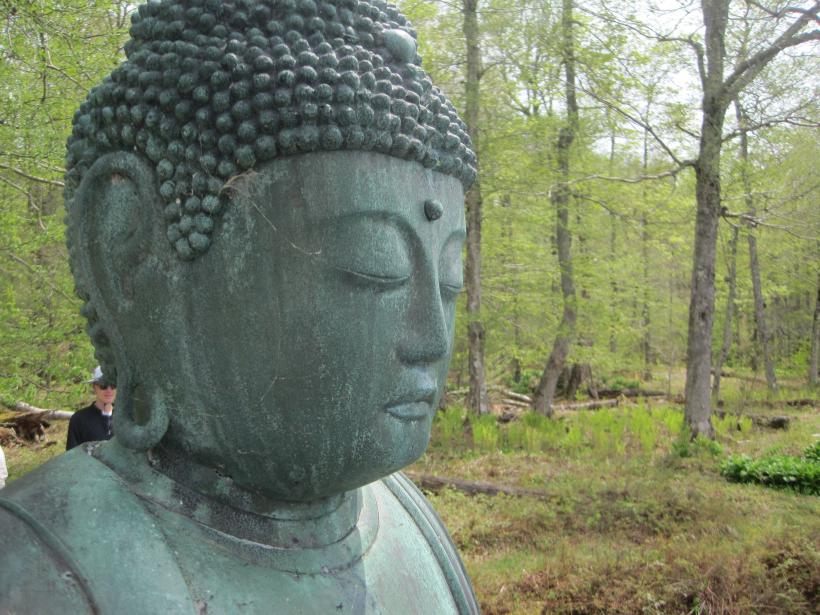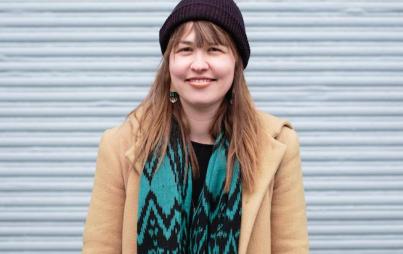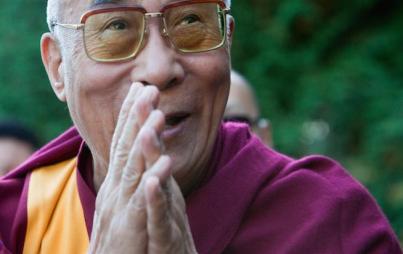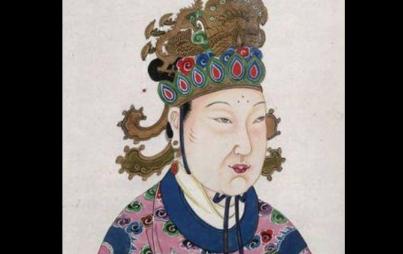
Statue at the Zen Buddhist Monastery, Upstate, NY
Forget achieving a blank, meditative state. I was in such extreme discomfort that I tried with every pore of my being not to run out of the Zendo screaming. Screw enlightenment and inner peace! I just wanted the damned bells to ring so meditation would be over.
It took four hours and 140 miles to carpool from Brooklyn to the Catskill Mountains in upstate New York, where the Zen Buddhist monastery was nestled. Although it was incredibly beautiful, I felt like I was hurled into the middle of a lost I Love Lucy episode. Picture Lucy and Ethel yapping during silent meals, dropping their silverware, tripping over their robes and falling asleep in meditation.
At first, I felt like an abandoned ten-year-old, dropped off at a remote summer camp — with the extra added attraction of no cell phone reception or Wi-Fi. I thought the hardest part of the weekend was going to be picking out a robe. Boy, was I wrong!
As a chubby 55-year-old struggling to get fit, I’d wrestled with the idea of going on a weekend retreat with my yoga studio, but the regimented schedule wasn’t for the fainthearted. This was no yoga-by-the-pool spa vacation. We would get a crash course in the Rinzai Zen Tradition, living with the shaved-headed (male and female) residents. Make no mistake about it, Buddhist monks are hardcore.
After check in and robe selection (I opted for a navy blue, since fuchsia was unavailable), we had a wonderful, gentle-flow-yoga class in the library.
The informal supper in the dining hall was easy enough. We were instructed to take all we wanted, but to eat all we took since wastefulness was frowned upon. The low, polished, wooden table offered vegetarian delights: brown rice, veggie chili, “cow cheese,” fresh, crunchy salad, and delicious egg-free oatmeal cornbread. 
It was customary to fill your plate on your knees, sliding from one dish to the next. Juggling my silverware, I dropped my fork to a clattering din. A young monk whisked it away without a word but I was still mortified. We ate at long, squat tables while sitting on cushions. Already, my arthritic knees were killing me. How could I make it through an entire weekend of kneeling?
After dinner, we were told to go to the Zendo (meditation hall) wearing our robes after the Shinrei (warning bell). Although there was no mirror in my austere but spotless room (just a set of bunk beds and a utilitarian nightstand), I felt like a big, blue penguin.
Next on the agenda was our orientation in Zen meditation postures and silent three-bowl eating. Overwhelming doesn’t even begin to describe it. I panicked. Could I remember protocol? Waiting for the Abbot (whom I couldn’t help thinking of as “Mother Superior”) to begin eating before you did. Then waiting for the person across from you to start. How to properly clean your bowls in hot tea, drinking the backwash, then folding the cloth in a specific way, but remembering to slip in your chopsticks first. Aaagh!
And what was with all of the bowing? Bowing before AND after eating. Bowing four times in the Zendo itself: one at the doorway, one at the aisle, one when you reached your place and faced the altar, and one to your partner across the Zendo, even if they weren’t there. “When in doubt, just bow,” advised Bruce, one of the acolytes.
At dusk, the Zendo was especially striking, its wooden walls and floors glowing in the candlelight. Our places were marked with our names on dry-erase boards. We each had woven mats, a thick black cushion, a prayer book and a personal set of eating bowls.
I must admit, I liked the walking meditation. It had a kind of poetry: the swish of our robes, the slap of our feet on the bare floors. We made our way through the corridors surrounding the Zendo, hands folded. Not so bad. I could get used to this.
Zazen (seated meditation) of 40 minutes was another thing entirely. My body ached in places I never knew existed. You’re not supposed to move at all —only with complete stillness of body can you achieve stillness of mind — but I was downright fidgety trying to find a comfortable seat. With the quiet of the room, my rustling was amplified. My hip sockets throbbed. I wondered if I could cry noiselessly, but knew it was unfeasible.
Forget achieving a blank, meditative state. I was in such extreme discomfort that I tried with every pore of my being not to run out of the Zendo screaming. Screw enlightenment and inner peace! I just wanted the damned bells to ring so meditation would be over.
The yoga buddy to my right seemed to have as much trouble as I did, but Alice didn’t step up when Aiko asked if anyone struggled to find a cozy meditation seat. We tried extra cushions under my butt and pillows under my knees, which seemed to do the trick.

I was up before Shinrei, where a monk walked the halls like a mute town crier, ringing a piercing bell. Then the gong sounded. It would be impossible to sleep in, even if you tried. What the heck, I would check out morning service.
From the Zendo, we grabbed our pile of cushions (I had at least ten) and prayer book (bowing before it first) and headed to the Dharma Room in an orderly line. I prayed I wouldn’t drop anything. Then I prayed in phonetic, monotone Japanese. To me, it sounded like a combination of gibberish, Catholic mass in Latin, and the final scene from The Devil’s Daughter, a low-budget horror flick that scared the tuna salad out of me.
One prayer was repeated 21 — count 'em — 21 times, getting faster and faster until it reached a shouting, orgasmic crescendo and ended with a crazy “Moo! Moo!” The praying went on for at least an hour. I kept losing my place. The atonal chanting made me feel uneasy. It reminded me of Mongolian throat singing and Bluto on “Popeye.” I tried to focus on the simple grace of the English translation. Beauty was everywhere; I just had to look.
My legs screamed, even with the padding. When we marched back to the Zendo, I put back my cushions and grabbed a folding chair. ‘Don’t be a hero,’ I told myself. ‘Even Mother Superior sits in a chair.’
This Zazen wasn’t as painful as the first but it seemed endless. A woodpecker competed with the han (wooden clapper). I nodded off like a subway commuter and tried not to fall off my chair. In the silence of the Zendo, stomachs grumbled, including mine. I contemplated sneaking out a fart but held it in. Farting in a Buddhist temple was probably a sin and as punishment, I might be reincarnated as a turd. I wondered if I could steal a peek at my Indiglo watch but didn’t dare. I was afraid I’d come back as a lightning bug.
After Zazen, we filed off to silent breakfast, toting our bowls. By mistake, the pointy edge of my chopsticks faced my neighbor across the Zendo. This was the equivalent of aiming a gun at someone, apparently. A monk turned them the right way. At least I wasn’t given demerits like Felix and Oscar were in that classic Odd Couple episode.
Never was a meal so stressful! I kept my eye on the Grand Poobah and tried to unwrap my bowls just as she did hers, making sure to keep pace with my eating partner. A huge metal bowl of oatmeal was pushed down the table on a placemat, followed by raisins, nuts, brown sugar, yogurt, fruit, and hard-boiled eggs.
Before we began, a small wooden board came down the center of the table. Onto it, we put a symbolic offering of thanks to the Buddha. Then we prayed. A lot. In English and Japanese. In “The Five Reflections,” we thanked the people who grew and prepared the food, plus we vowed to practice mindfulness and transcend greed.
At first, it seemed silly — why couldn’t we just eat? — but then I saw the value in taking pause to realize where your meal comes from and giving thought to your deeds.
When the Abbess began chowing down, we could too. The idea was to do it quietly and efficiently, not wasting a motion. I worried I would choke. I wondered how to noiselessly crack my egg. I stressed out over how sanitary a rinse in green tea (no soap) would make my bowls. I hoped I wouldn’t be the last one eating; something no one wanted to be.
A yoga class afterwards took the edge off the tense, soundless breakfast. Before we began, our teacher asked each of us to share why we were there. Hmmm. Not having to do laundry for three days? But this was much more complex, and demanding than my dirty undies. You see, the retreat began on the two year anniversary of my mastectomy. I’m celebrating me,” I told the class. “My survival.”
I won’t say that the weekend was easy, but I never gave up. Two yogis didn’t last the first night and drove home immediately after orientation. Although, I must admit, the thought crossed my mind, I couldn’t go. I was curious about what lay ahead and how I would deal with the challenge. The dozen participants who remained found strength in each other. 
At Zazen that night after the evening meal, which thankfully was informal — no robes, no three-bowl sleight-of-hand — I found a sense of peace. I was serene as I sat in my folding chair. I saw the sheen of the wooden floor, and that pegs, not nails, held the slats in place. I remembered the way Bruce had polished them in the Zen way, running across its length on hands and feet, pushing a rag ahead of him. I thought of the tranquility of the lake, the daffodils, and the joy Mariko took in her vegetable garden. I studied the way Sheba’s hair cloaked half of her face, like a lace veil. I remembered Jim explaining the significance of the han: “Its sound reminds us that time flies like an arrow and waits for no human.”
I decided to pass on the morning service my last day at the Zendo. Instead, I listened to the muffled chants from my room, letting them wash over me like water. The tension melted from my bones like honey.
Our last yoga class was slow and spiritual. To close, the teacher had us join hands in a circle. “Om is the sound the universe makes when it is satisfied,” she said. Our oms swirled and curled one into the other. It was so powerful that tears filled my eyes. But it was different than in the Zendo; these were tears of contentedness.
The Song of Zazen asks, “Where do we find the Buddhas?” I think I know the answer: they’re here, in all of us.






